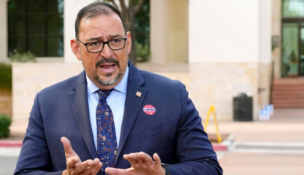It’s ‘Christmas tree’ time in June
Arizona Capitol Reports Staff//June 12, 2009//[read_meter]
The budget approved last week by lawmakers was stuffed with dozens of policy changes that have little, if anything at all, to do with solving the state’s massive deficit.Some of...
No tags for this post.

















